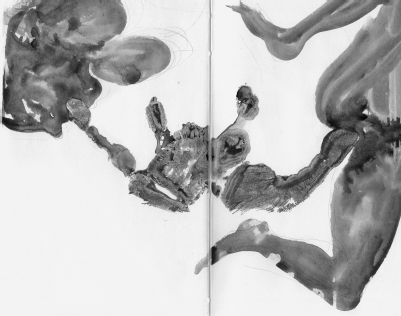Nancy - Sexistence
Here you can read online Nancy - Sexistence full text of the book (entire story) in english for free. Download pdf and epub, get meaning, cover and reviews about this ebook. City: New York, year: 2021, publisher: Fordham University Press, genre: Religion. Description of the work, (preface) as well as reviews are available. Best literature library LitArk.com created for fans of good reading and offers a wide selection of genres:
Romance novel
Science fiction
Adventure
Detective
Science
History
Home and family
Prose
Art
Politics
Computer
Non-fiction
Religion
Business
Children
Humor
Choose a favorite category and find really read worthwhile books. Enjoy immersion in the world of imagination, feel the emotions of the characters or learn something new for yourself, make an fascinating discovery.
- Book:Sexistence
- Author:
- Publisher:Fordham University Press
- Genre:
- Year:2021
- City:New York
- Rating:4 / 5
- Favourites:Add to favourites
- Your mark:
- 80
- 1
- 2
- 3
- 4
- 5
Sexistence: summary, description and annotation
We offer to read an annotation, description, summary or preface (depends on what the author of the book "Sexistence" wrote himself). If you haven't found the necessary information about the book — write in the comments, we will try to find it.
Sexistence — read online for free the complete book (whole text) full work
Below is the text of the book, divided by pages. System saving the place of the last page read, allows you to conveniently read the book "Sexistence" online for free, without having to search again every time where you left off. Put a bookmark, and you can go to the page where you finished reading at any time.
Font size:
Interval:
Bookmark:


Jean-Luc Nancy
TRANSLATED BY STEYEN MILLER
FQRDHAM UNIVERSITY PRESS NEW YORK 2021
Copyright 2021 Fordham University Press
All rights reserved. No part of this publication may be reproduced, stored in a retrieval system, or transmitted in any form or by any meanselectronic, mechanical, photocopy, recording, or any other except for brief quotations in printed reviews, without the prior permission of the publisher.
This book was originally published in French as Jean-Luc Nancy, Sexistence, Copyright ditions Galile, 2017.
Frontispiece Miquel Barcel, 2017
Fordham University Press has no responsibility for the persistence or accuracy of URLs for external or third-party Internet websites referred to in this publication and does not guarantee that any content on such websites is, or will remain, accurate or appropriate.
Fordham University Press also publishes its books in a variety of electronic formats. Some content that appears in print may not be available in electronic books.
Visit us online at www.fordhampress.com.
Library of Congress Control Number: 2021904182
Printed in the United States of America
23 22 215 4 3 2 1
First edition
(For their reading and their advice, I thank Ccile Bourguignon, Rosaria Caldarone, Ariane Chottin, Zeynep Direk, Mathilde Girard, Juan-Manuel Garrido, and Hlne Nancy)
nothing so much as this the more we enjoy it the more concupiscence becomes our fate
Fatality?
Every genre of sex has its preliminaries: one approaches, one considers, one scents, one lets oneself be approached, brushed, and stroked in the various senses of that word. There is a word in Classical Latin, blandiri, that the Latinate languages long retained, in which the caress mixes with speech, each changing place with the other and sinuously looking to merge in the silence of a kiss. Montaigne speaks of the seductive blandishments of immoderate pleasure. It happens that things progress and then without notice or precaution one goes right for the goal, albeit not without this transgression itself constituting a defiant approach, a superb manner of declaring that one can and will pass on the preliminaries. One thereby designates the threshold even more clearly. Because liminaries pertain to the threshold, they happen on the threshold, and what precedes them must arrange and ready access to the threshold. Blandishments and kisses not only open access, they already engage it, experience it, and anticipate it.
The preliminaries, too, are already part of what they precede, prepare, hold up, and overtake at the same time. This is the case, at least, with sexual preliminaries; but we should also examine whether it holds true for all preliminaries, and whether it is always the modulation of a characteristic that most properly emerges in sex: an anticipation that does not merely project but precedes or assumes the precocious character of a premature enjoyment with regard to a fulfilled coitus.
But what precisely is the fulfillment in question? The possibility of fertilization? A sharing of enjoyment? In what order of finality, destination, disorientation, or confusion do we find ourselves?
In truth, we have arrived at the crux of what is called sex: neither sexual difference, nor different sexualities, but sex itselfsex as an act and not an organ or function. To the extent that it happensno matter how, as relation or as anticipation, as enjoyment or as disappointment. To the extent that it demands to happen, that it demands to be had not as a need must be satisfied but as a pressure exerts itself, as an excitation excites itself [sexcite], exalts itself [sexalte], exasperates itself [sexaspre], and in sum perhaps to say nothing furtherexists itself [sexiste]: it arises and propels itself into existence, which is, at least, one of its most energetic mainspringsalbeit, as well, the least necessary, or the most excessive [excdent] (if not actually maddening [excdant]).
The organ thus welcomes the difference of the stranger into my body: it is always the organ of my ruin, and this truth is so original that neither the heart, the centralorgan of life, nor the sex, the first organ of life, can escape it A true man has no sex for he must be his sex. As soon as the sex becomes an organ, it becomes foreign to me, abandons me, acquiring thereby the arrogant autonomy of a swollen object full of itself. This swelling of the sex become a separate object is a kind of castration The organ: place of loss because its center always has the form of an orifice. The organ always functions as an embouchure.
The crux is indeed this: that sex is an exigency and an excess; that its demand never quenched because it was never destined to be is announced in the difficulty of the word dira as Lucretius employs it: a term of augury, designating a deathly presage but also the power of a furor. A furor itself both bright and dark, an augury of both favor and fright be-causeas Lucretius developswhat appeases it unleashes it anew and it always finds itself on its own threshold. Such is its fatality:
Craving for water or for bread is easily satisfied.
But of a human faces bloom and beauty, what comes in
For the body to enjoy? Just images, flimsy and thin,
And the wind often snatches even this scrap of hope away.
As in a dream, when a man drinks, trying to allay
His thirst, but gets no real liquid to douse his bodys fire,
And struggles pointlessly after mere images of water,
And though he gulps and gulps from a gushing stream, his throat is dry,
So Venus teases with images lovers cant satisfy
The flesh however they devour each other with the eye,
Nor with hungry hands roving the body can they reap
Anything from the supple limbs that they can take and keep.
Lastly, when their limbs are tangled, and they pluck youths bloom,
And bodies have a foretaste of the pleasures that now loom,
And Venus is about to sow the womans field with seed,
They grasp each other and mix the moisture of their mouths in greed,
And panting heavily, press teeth in lips, but all in vain
Theres nothing of the other they can rub off and retain.
Nor can one body wholly enter the other and pass away
What Bataille will designate much later as erotic comedy is already staged here, staged as the drama that, in reality, this comedy designates for Bataille himselfthe drama or perhaps, well try to return this, tragedy in the most powerful sense of the term: that of sense fulfilling itself in the passage to the limit of sense itself, in accord with its ownmost fatality.
This passage, when it is not the passing away of death, is that of sexor that of language. For, the latter exposes what sex without language is content to impose: an interminable pursuit, running that chases its own course.
This course, ever again, thrusts and urges itself forth because it has no end: it does not pass anywhere but proves and approves itself in its very passage. Lucretius clearly discerns what happens: he pursues, with a prosodic haste or rush that seems itself to lose breath before or in what it says:
Font size:
Interval:
Bookmark:
Similar books «Sexistence»
Look at similar books to Sexistence. We have selected literature similar in name and meaning in the hope of providing readers with more options to find new, interesting, not yet read works.
Discussion, reviews of the book Sexistence and just readers' own opinions. Leave your comments, write what you think about the work, its meaning or the main characters. Specify what exactly you liked and what you didn't like, and why you think so.












